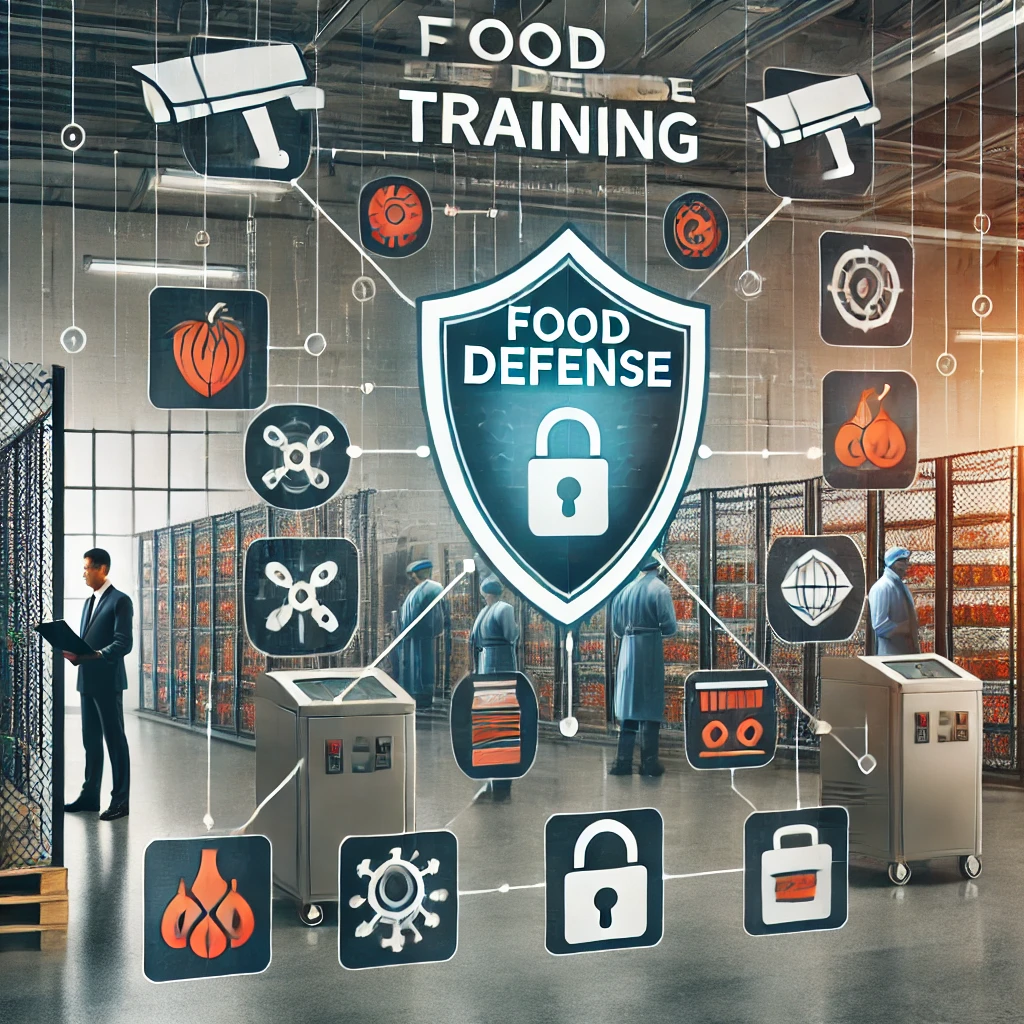Food Defense

About Course
Safeguarding Your Food Supply
Course Description: This comprehensive training program is designed to equip participants with the knowledge and skills necessary to implement effective food defense programs. You will learn how to identify vulnerabilities, develop preventive measures, and respond effectively to intentional adulteration threats.
Course Objectives:
- Gain a deep understanding of food defense concepts and its critical role in protecting the food supply.
- Identify potential vulnerabilities within the food supply chain.
- Develop and implement effective food defense plans that align with international standards.
- Enhance the organization’s ability to respond quickly and effectively to threats.
- Ensure compliance with food safety regulations and standards.
Why Attend?
- Protect your brand reputation: Build trust with consumers by demonstrating a commitment to food safety.
- Ensure regulatory compliance: Avoid costly recalls and legal penalties.
- Minimize financial losses: Reduce the risk of product contamination and economic loss.
- Enhance operational efficiency: Improve overall operational efficiency through effective food defense practices.
Course Content:
- Fundamentals of Food Defense: A comprehensive overview of food defense concepts, its importance, and the differences between food safety and food defense.
- Vulnerability Assessment: Conduct a thorough assessment of potential vulnerabilities in your food supply chain, including physical, procedural, and personnel vulnerabilities.
- Threat Assessment: Identify potential threats to your food supply, such as intentional adulteration, sabotage, and terrorism.
- Plan Development: Develop a comprehensive food defense plan that outlines preventive measures, corrective actions, and emergency response procedures.
- Physical Security: Implement effective physical security measures to protect your facility, including access control, surveillance, and perimeter security.
- Employee Training: Train employees to recognize and report suspicious activities, and to follow established procedures in case of a food defense incident.
- Incident Response: Develop and practice emergency response plans to minimize the impact of a food defense incident.
- Documentation and Recordkeeping: Maintain accurate and complete records of all food defense activities to demonstrate compliance with regulations.
Target Audience:
- Quality and food safety managers
- Operations managers
- Security managers
- Crisis management teams
- All employees involved in food production and handling
Key Benefits:
- Expert instruction from industry leaders
- Practical exercises and case studies
- Customizable training to meet your specific needs
- Certification upon completion
Invest in the safety of your food supply and the future of your business.
Student Ratings & Reviews

No Review Yet







